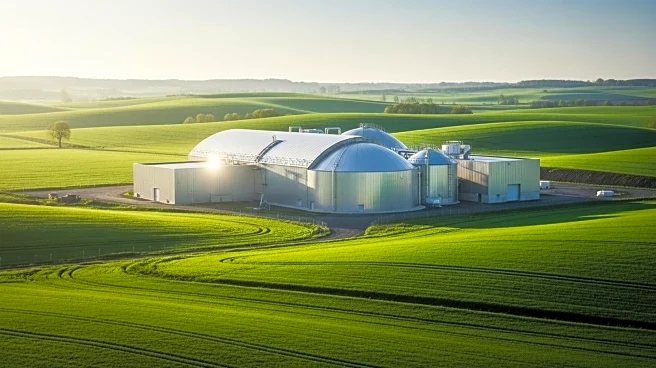What's Happening?
A new report from Minnesota's Agricultural Utilization Research Institute (AURI) highlights the potential benefits of anaerobic digesters for farms of all sizes. Anaerobic digestion is a process where micro-organisms break down organic matter, such as food waste and manure, to produce biogas and digestate. The report, titled 'The Biogas Opportunity for Minnesota Farmers: A Business Guide for On-Farm Anaerobic Digestion,' provides a roadmap for farmers to add value to their operations through this technology. Brad Matuska from AURI notes that while the technology is established, there is still misunderstanding about its applications. The study suggests that anaerobic digestion could meet over 13% of Minnesota's natural gas demand.
Why It's Important?
Anaerobic digesters offer a sustainable solution for managing organic waste, reducing reliance on fossil fuels, and generating renewable energy. By adopting this technology, farmers can create additional revenue streams and contribute to environmental conservation. The report underscores the importance of exploring individual opportunities for farms to participate in the anaerobic digestion industry. As the demand for renewable energy grows, the adoption of digesters could play a significant role in meeting energy needs and reducing greenhouse gas emissions.
What's Next?
Farmers and agricultural stakeholders are likely to explore the implementation of anaerobic digesters, guided by the insights provided in the AURI report. The potential for meeting a significant portion of natural gas demand through anaerobic digestion may prompt further research and investment in this technology. Policymakers and industry leaders may advocate for incentives and support to encourage broader adoption, fostering a shift towards more sustainable agricultural practices.








